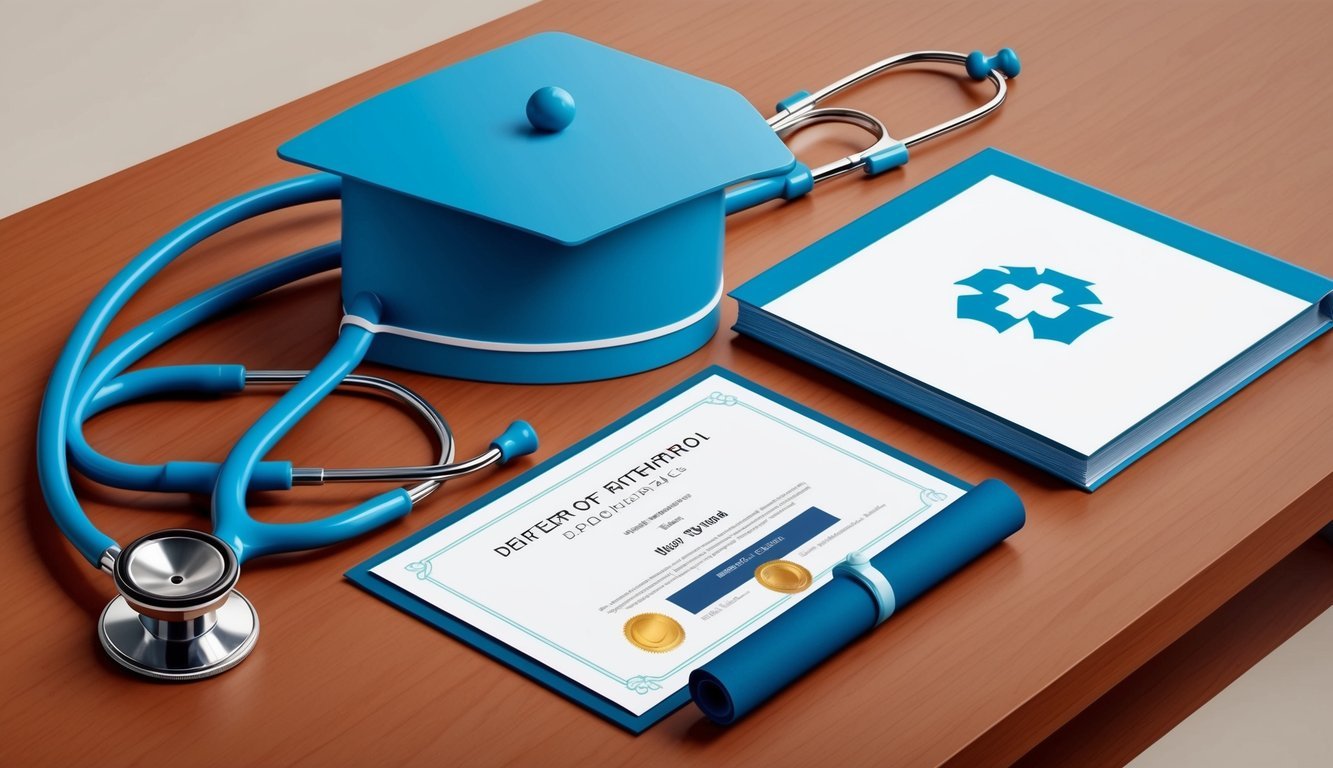Creating a compelling new grad nurse resume is essential to landing your first nursing position in a competitive job market.
A well-crafted nursing resume highlights your qualifications, emphasizes your educational background, and showcases relevant clinical experience, making it easier for hiring managers to see your potential as a valuable team member.
To stand out, consider incorporating specific skills and certifications that align with the job requirements.
Utilize examples from your clinical rotations or internships to demonstrate your expertise and dedication to patient care.
Resources like NursingProcess.org can provide valuable insights on crafting your resume effectively.
Moreover, tailor your resume for each application to emphasize the traits and experiences most relevant to the position.
By focusing on a job-winning resume that captures your strengths, you increase your chances of impressing potential employers.
For a thorough guide and templates, visit Resume Genius for a practical approach to showcasing your nursing capabilities.
Contact Information and Resume Objective
In this section, you will learn about the essential components of your contact information and how to craft an effective resume objective.
These elements play a crucial role in making a strong first impression on potential employers.
Personal Contact Details
Your personal contact details should be clear and easily accessible.
Include the following:
- Full Name: Use a name that you’re comfortable with, ensuring it stands out.
- Phone Number: Provide a mobile number where you can be reached.
- Email Address: Opt for a professional email, preferably a combination of your name.
- LinkedIn Profile: If applicable, include a link to your LinkedIn profile for additional credibility.
- Address: While not mandatory, including your city and state can demonstrate your local availability.
Make sure to format this information prominently at the top of your resume to facilitate quick contact by hiring managers.
Professional Summary
A professional summary is a brief statement that encapsulates your experience, skills, and career goals.
It should be tailored to the position you seek.
For a new grad nurse, consider including:
- Your Role: “Compassionate New Graduate Nurse”
- Key Skills: Highlight skills such as patient care, critical thinking, and teamwork.
- Relevant Experience: Mention clinical rotations or any hands-on experience.
- Career Goals: Briefly state your intention to provide quality care.
Keep this section concise, ideally around three to five sentences, to maintain the reader’s attention.
Resume Objective
Your resume objective should clearly state your intentions and what you hope to achieve in the role.
Aim for 1 to 3 sentences that outline:
- Position Desired: Specify the role you are applying for, such as “Staff Nurse.”
- Your Skills: Briefly mention skills relevant to the job, emphasizing how they serve the organization.
- Commitment to Patient Care: Express your dedication to providing compassionate and high-quality care.
An example could be: “Dedicated and diligent nursing graduate seeking a staff nurse position at [Hospital Name] to leverage hands-on clinical experience in delivering exceptional patient care.” Crafting a targeted resume objective can make you a strong candidate, as outlined in examples from NursingProcess.org.
Education and Certifications

Your education and certifications play a critical role in establishing your qualifications as a new graduate nurse.
Highlighting these elements effectively can set you apart in a competitive job market.
Nursing Degree Completion
When listing your nursing education, include your degree, the institution, and the graduation date.
If you pursued a Bachelor’s of Science in Nursing (BSN) or an Associate’s Degree in Nursing (ADN), make sure this is clearly stated.
Example:
| Degree | Institution | Graduation Date |
|---|---|---|
| BSN | University of Nursing | May 2024 |
Including your GPA is also beneficial, particularly if it’s 3.5 or higher.
If you graduated cum laude or received any honors or distinctions, this should be noted as well.
This information can reflect your academic dedication and competence.
Licensure Information
Your RN license is crucial for practicing as a registered nurse.
After graduation, you must pass the NCLEX-RN exam to obtain this license.
Including your licensure status on your resume is essential.
You can format it like this:
- Licensure: RN License, State of [Your State]
- NCLEX-RN: Passed, [Date of Passing]
Mentioning your NCLEX-RN pass date shows you meet the required standards.
If you are still awaiting licensure, note that you are a candidate for the next exam, which demonstrates your proactive approach.
Additional Certifications
Beyond your RN license, additional certifications can enhance your employability.
You may want to obtain certifications in Basic Life Support (BLS), Advanced Cardiovascular Life Support (ACLS), or Pediatric Advanced Life Support (PALS).
List these certifications in your resume, including:
- Certification Title: Date Earned
- Issuing Organization
For instance:
| Certification | Date Earned |
|---|---|
| BLS | June 2024 |
| ACLS | July 2024 |
Certifications not only validate your skills but also demonstrate your commitment to continuing education in nursing.
Consider highlighting any specialty areas that align with the jobs you’re applying for to make your resume more relevant.
Professional Experience and Skills
In the nursing field, showcasing your professional experience and skill set is crucial for landing your first position.
Highlighting both clinical experience and relevant nursing skills can significantly enhance your resume.
Clinical Experience
Your clinical experience serves as a foundation for your nursing career.
Include all relevant placements during your education, particularly those involving direct patient care.
Consider creating a table to summarize your experiences:
| Clinical Experience | Facility | Duration |
|---|---|---|
| Patient Care Assistant | City Hospital | Jan 2023 – Apr 2023 |
| Pediatrics Internship | Children’s Medical Center | May 2023 – Aug 2023 |
| Adult Medicine Rotation | General Hospital | Sept 2023 – Oct 2023 |
In each role, focus on key responsibilities like patient assessment, medication administration, and wound dressing.
Evidence of hands-on experience in IV insertion and patient management will also strengthen your application.
Relevant Nursing Skills
Your nursing skills demonstrate your ability to perform essential functions.
Identify the most relevant skills for the positions you are applying for.
Key skills to highlight include:
- Patient Care: Ability to provide compassionate, evidence-based care to diverse patient populations.
- Medication Administration: Familiarity with safe practices in administering medications and managing patient records.
- Wound Dressing: Proficiency in dressing applications and changing techniques for various types of wounds.
- IV Insertion: Competence in inserting IV lines effectively and with minimal discomfort for patients.
Consider using bullet points for clarity.
Showcasing these specific skills will help prospective employers understand your readiness for the nursing role.
For more detailed examples, consult nursing resume tips.
Additional Qualifications
When applying for a nursing position as a new graduate, showcasing additional qualifications can enhance your resume significantly.
Highlighting your interpersonal skills and relevant volunteer experiences can make you stand out to potential employers.
Interpersonal and Communication Skills
Strong interpersonal and communication skills are crucial in nursing.
You will interact with patients, families, and healthcare teams regularly.
Your ability to convey information clearly and compassionately can greatly influence patient outcomes.
Key Skills:
- Active Listening: Understand patient needs and concerns.
- Empathy: Provide emotional support to patients and their families.
- Conflict Resolution: Address conflicts amicably in high-pressure situations.
Demonstrating these skills through examples during your nursing internships or volunteer work can reinforce their importance.
You might consider specifying instances where you resolved a misunderstanding or provided support to a distressed patient.
Volunteer Work and Internships
Participating in volunteer work and internships shows dedication and eagerness to learn.
These experiences provide valuable insights into the nursing profession, enhancing both your hard and soft skills.
Benefits of Volunteer Work:
- Hands-On Experience: Gain practical skills and exposure to diverse patient populations.
- Networking: Build relationships with established professionals in the field.
- Skill Development: Improve teamwork and problem-solving abilities.
Internships often allow you to shadow experienced nurses and engage in direct patient care.
Highlight your specific roles and contributions in these settings, detailing how they prepared you for a professional nursing environment.
Consider integrating examples from your time at organizations like hospitals or community clinics to reinforce your experiences.
Resume Aesthetics and Formatting
Creating an aesthetically pleasing resume is crucial for making a positive impression.
Appropriate formatting enhances readability and presents your professional qualifications more effectively.
Consider the specifics of resume format and layout to ensure clarity and impact in your presentation.
Choosing the Right Resume Format
Selecting the right resume format can significantly affect how your qualifications are perceived.
The reverse-chronological resume is the most commonly recommended layout, especially for new grad nurses.
It lists your work history in reverse order, allowing potential employers to see your most recent experience first.
Another option is the functional resume, which focuses on skills and competencies rather than employment history.
This can be useful if you have limited work experience or want to emphasize specific skills over previous jobs.
You might also consider using resume templates to maintain a professional appearance.
Pre-made templates are available through various platforms, like Nurse.org, which can assist in structuring your information effectively.
Effective Resume Layout and Design
When you design your resume, remember that clarity is key.
Use clear headings and a consistent font style. Bold your section titles to guide the reader’s eye and make it easy to locate specific information.
Consider the following elements for your resume layout:
- Margins: Maintain 0.5 to 1-inch margins for a clean appearance.
- Font Size: Use 10-12 point font for body text and larger sizes for headings.
- Bullet Points: Utilize bullet points for listing qualifications and experiences to improve readability.
Incorporate white space to avoid cluttering your resume.
A well-structured layout allows employers to quickly assess your qualifications.
You can explore design ideas through sites that provide free templates, such as ResumeGenius.

